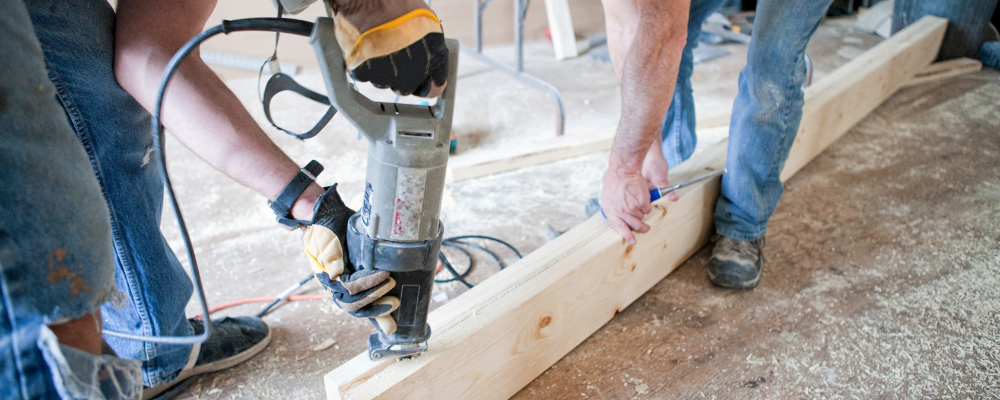A brief overview
If you’ve landed in a difficult financial situation where you can no longer keep up with your mortgage payments, don’t panic. There are a variety of ways to sell your distressed property and get yourself out of trouble. Read on to find out how to sell a distressed property.
Table of Contents
People who are looking to buy a house, whether it be for their own use or for investment purposes, are usually looking for the best deal they can find. In a seller’s market, buyers are even more hungry to find good deals, and one of the most common ways to do this is to buy a distressed property. Buyers will often purchase a distressed property with the intention of upgrading it and then reselling it or renting it out.
For some people who simply cannot afford to pay their mortgage anymore and need to sell their home, this is good news because there are bound to be buyers ready and waiting to snag the house. If you’re in the situation where you need to sell your home for this reason, we’ve got a few tips for you on how to sell a distressed property.

What is a distressed property?
Let’s start at the beginning and discuss what a distressed property is. A distressed property is a house that is going to enter foreclosure or be repossessed by the bank or a lender because the owners can no longer make their monthly mortgage payments. Distressed properties sometimes need repairs if the owners haven’t been able to afford to maintain the property or make necessary repairs.
Distressed property owners have either defaulted on the loan itself, or on taxes. There are 3 types of distressed properties:
- Foreclosures: When a buyer cannot meet their monthly mortgage payments, a house will enter foreclosure where the lender will seize the house. These homes will typically be sold at a foreclosure sale or at an auction.
- Short sales: These are sales that happen when a home is about to enter foreclosure but hasn’t yet. Property owners can no longer pay their mortgage and are facing foreclosure, so they sell the house themselves to a willing buyer before it is foreclosed.
- REO properties: Real Estate Owned (REO) properties are houses that fail to sell at foreclosure auctions and the lender therefore owns the property. These properties were seized by lenders because the owners could no longer pay the mortgage however, they have not sold at the auction and so they remain in the lender’s possession to be sold.

How to sell a distressed property
When you’re deciding on the best way to sell your distressed property, you’ll need to base your decision on how quickly you need to sell, how much work you’re willing to do on the house and how much you can spend (if anything) to get the house sold. Here’s a step-by-step look at the process for selling a distressed property:
1. Assess the value of your home
Many real estate investors are looking to pick up a good deal on distressed homes which is good for getting the property sold, and not so good for sellers who aren’t aware of what their home is worth and get taken advantage of. To avoid this, your vital first step is to assess the value of your home so that you know what it’s worth before you try to sell it. There are a few ways to do this:
- A Comparative Market Analysis (CMA): A CMA can be done by a real estate agent, or you can do it yourself. It involves comparing similar properties (comps) in the area to determine how much they’re worth. If you decide to get comps on your house, make sure to look at homes that are a similar size and age, with the same number of bedrooms and bathrooms, to get a more accurate idea.
- Home appraisal: If you have the budget for it, you can hire a professional home appraiser to determine the value of your house. They will put together a full report on the property, give you an expert opinion on how much your house is valued at, and also suggest improvements that can be made.
- Online home value estimator: Some websites, like popular real estate websites or iBuyers, offer a free tool where you can fill in the details of your property to work out what the value of your home would be. These tools are a useful way to work out what your home value is before you decide how to sell it.
2. Should you repair the house or sell as is?
Your next decision is whether you are going to repair and upgrade your house, or if you’re going to sell it as is. If you’re in financial trouble, you may not have the money for any upgrades, however some repairs could be worthwhile doing as you’d recoup what you spend on them when you sell the house and they could make it easier to sell. Here are some factors to consider:
- Your selling timeline: If you need to sell the house as soon as possible, then you’ll probably need to sell it as is. You’ll often sell to a cash buyer in this case, and they may not be concerned about having to do repairs. However, bear in mind that you are likely to get less for the house this way, possibly even below market value. If you’ve got some time to spare, you can look at doing repairs to the house, but make sure to focus on the repairs that will give you the best ROI.
- After Repair Value: Working out the value of your house after repairs have been done is a good way to decide if it’s worthwhile doing them. Websites like New Silver offer free online ARV calculators that you can use to get an idea of this value.
- Property inspections: One way to decide if you’ll be doing any repairs is to hire a professional property inspector to do an inspection of your property. They will tell you what problems your property has and what needs to be fixed.

3. Selling a Distressed Property with a real estate agent
The tried and tested real estate agent route is always an option for selling a distressed property. You’ll need to pay fees and commission, but real estate agents will save you a lot of time and effort and potentially find you a buyer quicker than you would yourself. However, if you’re in a rush to sell, this may not be your fastest route.
4. Selling a distressed property on your own (FSBO)
If you aren’t in a major rush, you could sell the house yourself and save on real estate agent fees and other costs. A good first step is to get a home inspection done, to figure out what sort of work your home might need done. You will need to market the house, do open house days, and negotiate with buyers yourself, however the up side is that you’re in full control of the process.
5. Other ways to sell a distressed property
Here are few other methods you can try, if using a real estate agent or selling the property yourself aren’t the right options for you:
Target house flippers
One way to get a house off your hands quickly is to approach any house flippers. Whether it be individual people who do house flipping, or larger organizations, you’re likely to sell the house fast and you won’t need to repair anything. It’s convenient and easy, and it’s a win-win for both you and the house flipper. Bear in mind however, you may not get fair market value for your house from a house flipper as they’re looking for the best deal possible that they can make a profit from.
Check out iBuyers
One of the newest ways to sell a house that needs work is to use iBuyers. These are cash buyers who can make instant offers on properties, and close in just 14 days without coming to view the house. This means that they will buy the house as is, with no repair work needed, so you won’t need to spend anything more. For sellers who need to get the house sold as quick as possible, this is a good option.
Real estate investors
Buy and hold investors are another option for those who are selling distressed houses. These investors can close on a property in a few weeks. They may also give sellers a better offer on the house that is closer to market value. However, they may not be willing to do a lot of repairs to the home and tend to favor homes that are not in need of any repairs.

Mistakes to avoid when selling a distressed property
1. Waiting too long
One of the most common mistakes that people make when selling a distressed property is waiting too long to get the home sold. Once you’ve reached the point of distress, it’s a good idea to get the house sold sooner rather than later for a number of reasons such as:
- Fines for the property not being up to code
- Squatters settling in a vacant home
- Foreclosure happening before the home can be sold
2. Pricing the house incorrectly
Another common mistake people make when selling distressed properties is not pricing the house correctly, or not being aware of the value of the house before selling it and therefore getting taken advantage of by investors or buyers. Make sure that you know the value of the house before you look for a buyer, and don’t settle for offers that are too low.
3. Not verifying buyers
When you’re selling a distressed property, there will be all sorts of buyers trying to get in on the deal, including cash buyers and companies. If you’ve got a cash buyer interested in your home it’s important to verify the buyer, so that you know that they’re legitimate and that the deal will go through. You can do this by asking for a proof of funds letter, to make sure that they have the funds and that they are the ones purchasing the property.

Why real estate investors hunt for distressed homes
Real estate investors are on the hunt for properties selling below market value and with distressed properties being sold by motivated sellers who are in a rush to get the property sold, investors can usually snag good deals. They will then fix up the property and sell it again, or rent it out, to make a profit.
Final thoughts
If you have found yourself in a situation where you cannot keep up with your mortgage repayments and need to sell your home, don’t panic… there are a variety of options for you. The method you choose will depend largely on the time frame you’ve got to work with. Once you’ve looked at all the options, you can choose the one that best suits your personal needs and take the sale forward from there, which should get you out of financial hot water.

